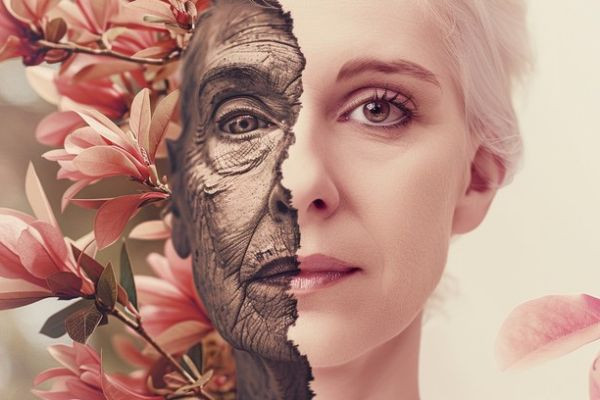Aging and Longevity: Understanding the Science of Growing Older and Living Longer
Aging is a natural, inevitable process, but how we age and the length of our lives can vary dramatically based on a variety of factors. With advancements in medicine, science, and a deeper understanding of human biology, people are living longer than ever before. The desire to not only live longer but also to age gracefully and maintain quality of life has led to extensive research into aging and longevity. This article explores the biological, social, and lifestyle factors that influence aging, along with strategies for promoting longevity and healthy aging.

The Biology of Aging
At its core, aging is a biological process where the body undergoes gradual changes over time. These changes manifest in cellular and molecular damage, which accumulates over the years, leading to a decline in physical and mental function. But what exactly happens on a cellular level?
1. Telomere Shortening
Telomeres are protective caps at the ends of chromosomes that prevent them from deteriorating or fusing with neighboring chromosomes. Each time a cell divides, its telomeres shorten, eventually reaching a point where the cell can no longer replicate. This process contributes to aging at a cellular level, limiting the body’s ability to regenerate tissues and heal. Telomere length is considered a marker of biological aging, and research suggests that lifestyle factors like stress, smoking, and poor diet may accelerate telomere shortening.
2.Oxidative Stress
As cells metabolize energy, they generate byproducts called free radicals. These free radicals can cause oxidative damage to cells, proteins, and DNA. The body has mechanisms to neutralize these free radicals, but as we age, these defenses weaken, leading to an accumulation of damage. Oxidative stress has been implicated in several age-related diseases, including cardiovascular disease, Alzheimer's disease, and cancer.
3. Mitochondrial Dysfunction
Mitochondria, known as the powerhouses of the cell, produce the energy needed for cells to function. Over time, mitochondrial function declines, leading to less efficient energy production and increased oxidative stress. This decline contributes to the aging process and is associated with many age-related conditions, including muscle weakness and neurodegeneration.
4.Cellular Senescence
As cells age, they can enter a state called senescence, where they no longer divide or function properly. While senescent cells are initially a protective mechanism to prevent damaged cells from turning cancerous, their accumulation can lead to chronic inflammation, tissue dysfunction, and a host of age-related diseases.
Factors Influencing Longevity
While aging is unavoidable, longevity—the length of time an individual lives—can be influenced by a variety of factors, ranging from genetics to lifestyle choices.
1. Genetics and Family History
Genetics play a significant role in determining lifespan, with some people inheriting genes that promote longevity. Studies of centenarians (people who live to be 100 years or older) show that they often have specific genetic variants that protect them against age-related diseases. However, genetics is only part of the equation, and environmental factors often have a greater influence on lifespan.
2. Diet and Nutrition
What we eat has a profound impact on how we age and how long we live. Diets rich in fruits, vegetables, whole grains, and lean proteins are associated with longer lifespans and lower risks of chronic diseases. In particular, the Mediterranean diet, which emphasizes healthy fats (like olive oil), fish, and plant-based foods, has been linked to increased longevity and reduced rates of heart disease, stroke, and cognitive decline.
Another dietary approach that has gained attention is caloric restriction. Studies in animals have shown that reducing caloric intake without malnutrition can extend lifespan by slowing down metabolic processes that contribute to aging. While the evidence in humans is less clear, intermittent fasting and calorie control have been associated with improved health markers and increased lifespan in some studies.
3. Exercise and Physical Activity
Regular physical activity is one of the most effective ways to promote longevity and healthy aging. Exercise improves cardiovascular health, maintains muscle mass, reduces inflammation, and enhances mental well-being. Aerobic exercise, strength training, and flexibility exercises like yoga or Pilates all contribute to overall health as we age.
Research shows that even moderate exercise, such as walking for 30 minutes a day, can significantly reduce the risk of heart disease, diabetes, and dementia. Additionally, staying physically active helps maintain mobility and balance, reducing the risk of falls and injuries in older adults.
4. Mental and Emotional Health
Mental health plays a crucial role in longevity. Chronic stress, anxiety, and depression can contribute to both mental and physical decline as we age. High levels of stress, for instance, are associated with shorter telomeres, increased inflammation, and higher risks of chronic diseases.
Conversely, practices that promote mental and emotional well-being, such as mindfulness meditation, social engagement, and having a sense of purpose, are linked to increased longevity. Loneliness and social isolation, common in older adults, have been shown to have a negative impact on lifespan, comparable to smoking or obesity. Maintaining strong social connections is essential for healthy aging.
5. Sleep and Rest
Adequate sleep is another critical factor in promoting longevity. Poor sleep has been associated with a wide range of health issues, including cognitive decline, immune dysfunction, and an increased risk of chronic conditions like diabetes and heart disease. Sleep is crucial for the body’s repair processes, helping to clear out toxins from the brain, support immune function, and regulate hormones.
Older adults often experience changes in sleep patterns, but maintaining good sleep hygiene—such as keeping a regular sleep schedule, avoiding caffeine and screens before bed, and creating a restful environment—can improve sleep quality and support healthy aging.
Anti-Aging Interventions and Research
The quest to slow down the aging process and extend human lifespan has led to a variety of scientific and medical interventions. While there is no “fountain of youth,” ongoing research is exploring potential therapies that could delay aging and promote longevity.
1. Senolytics
Senolytic drugs are a class of compounds that target senescent cells for destruction. By clearing out these non-functional cells, researchers hope to reduce chronic inflammation and improve tissue function, potentially delaying the onset of age-related diseases.
2. Gene Therapy
Advances in gene editing technologies, such as CRISPR, have opened the door to the possibility of targeting genes that contribute to aging. Researchers are exploring ways to repair damaged DNA, enhance telomere length, and modulate gene expression to extend lifespan.
3. Stem Cell Therapy
Stem cells have the potential to regenerate damaged tissues and organs, offering a promising approach to combating age-related decline. While still in the early stages of research, stem cell therapy holds the potential to treat conditions such as Parkinson’s disease, Alzheimer’s, and heart disease, all of which are prevalent in older adults.
4. NAD+ Supplementation
NAD+ (nicotinamide adenine dinucleotide) is a coenzyme that plays a critical role in energy production and cellular repair. Levels of NAD+ decline with age, contributing to mitochondrial dysfunction and cellular damage. Supplementing with NAD+ precursors has shown promise in animal studies for improving metabolic health and extending lifespan.
Conclusion
Aging is a complex process influenced by genetics, lifestyle, and environmental factors. While we cannot stop the clock, there are many ways to promote longevity and age gracefully. By adopting healthy habits such as eating a nutritious diet, staying physically active, managing stress, and getting enough sleep, we can improve our chances of living longer and healthier lives. Meanwhile, ongoing research into the biology of aging offers hope for future interventions that may one day slow down the aging process and extend human lifespan even further.



